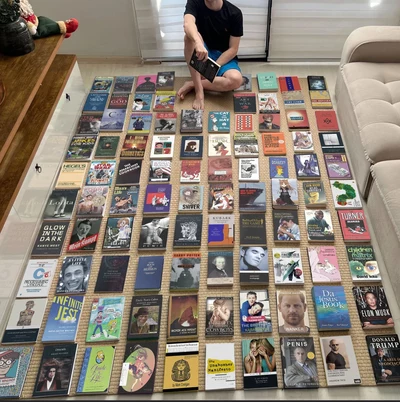- 11
- 34
So we have this guy and a girl sent together in Heck. But as soon as they get there, Heck freezes over and not even Satan knows why. They are set on a quest to figure out why. Anyway,

RELATIONSHIP DRAMA
RELATIONSHIP DRAMA
ONE CHAPTER DESCRIBES S*X IN GREAT DETAIL
RELATIONSHIP DRAMA
RELATIONSHIP DRAMA
SATAN IS GAY NOW
RELATIONSHIP DRAMA
RELATIONSHIP DRAMA

Heck unfreezes and the story is over I dunno
- 1
- 7
- 6
- 13
- DickButtKiss : "The BIPOC stole my homework"
- 28
- 110
Trying to pronounce his name would get me in trouble with the tongue rights groups, so I will not do it.
Here's the white woman warning people about him:
Apparently, he was already known for being a dramatard in the community:
Not gonna lie, proclaiming that you would never get a job is pretty based. 
This guy sounds more and more based by the minute.
And here's some person who's most certainly not obsessed trying to pull Fatrick into the conversation  :
:
TBH, dunking on Fatrick is always justified and, generally, a positive thing to do.
- 26
- 57
Yep, it's another drug pharmaceutical binge episode. How did I frick up my lip? Why are my towels wet? These are mysteries I'll never solve. Anyway, I need to stop abusing ambien and benzos because I CANNOT send fricked up texts to work colleagues which I KNOW is going to happen if I start my new job while still doing drugs.
just hide your phone and put your drugs away after you've dosed!
It's not that simple. Once I black out I'm capable of doing anything I can do sober, I just won't remember. I've tried putting my pills in a safe and high me just opened up the safe when I wanted to redose. It's time to put childish things aside and to embrace the responsibilities of adulthood.
I thought that I'd try to complete a quick effortpost on White Fragility by Robin DiAngelo. I was introduced to this book by Mat Walsh's "Am I Racist". It reavealed just how much of a grift the whole woke enterprise is and while there are several people that enter these spaces with positive intentions, clearly there are those who are out to make money from the white guilt they are fostering. I didn't finish Am I Racist because I did drugs and blacked out.
This post will summarize the text. Strap in, check your privileges, and let's begin!
Who is Robin DiAngelo?
In White Fragility, DiAngelo introduces herself as such:
I am a white American raised in the United States. I have a white frame of reference and a white worldview, and I move through the world with a white experience.
She works as a consultant on racial justice which involves helping individuals and organizations see how racism is manifesting itself in their practices and outcomes.
Robin DiAngelo Notices
Robin DiAngelo is a white woman, and she has observed both herself and her peers regarding how they react to race. DiAngelo claims that white people are very uncomfortable that race is brought up, and even more disturbed when they are accused of being racist. According to DiAngelo, white people are brought up to view racism as an act committed by an individual, not a systemic issue that all white people are implicitly responsible for upholding.
This problem is one primarily displayed by White progressives, and DiAngelo considered White progressives to be the biggest threat to Black people. Need a definition? DiAngelo's gotchu:
I define a white progressive as any white person who thinks he or she is not racist, or is less racist, or in the "choir," or already "gets it." White progressives can be the most difficult for people of colour because, to the degree that we think we have arrived, we will put our energy into making sure that others see us as having arrived. None of our energy will go into what we need to be doing for the rest of our lives: engaging in ongoing self-awareness, continuing education, relationship building, and actual antiracist practice. White progressives do indeed uphold and perpetrate racism, but our defensiveness and certitude make it virtually impossible to explain to us how we do so.
At this point, some might be wondering why the frick she is so obsessed with race. Well, according to DiAngelo, race is one of the biggest social dilemmas humankind is dealing with. Her reasoning:
Race will influence whether we will survive our birth, where we are most likely to live, which schools we will attend, who our friends and partners will be, what careers we will have, how much money we will earn, how healthy we will be, and even how long we can expect to live.
If you're White, you probably operate under the axioms of individuality and objectivity. Being an individual means you are unique, even in a group of others who share your identity. If you see yourself as an individual, it is easy to distance yourself from the concept of racism. "I may be White, but I personally am not a racist White". The idea that we are objective beings stems from the Enlightenment period and it is a cornerstone of modernity.
DiAngelo asks you to reconsider your identity as an individual and instead focus on your Whiteness and how it makes you complicit in racism. Lastly, DiAngelo is adamant that BLACK PEOPLE CANNOT BE RACIST. This is important to understand if you wish to make sense of her entire thesis. While Black people may practice prejudice, they lack the systemic power to transform that into racism. In DiAngelo's own words:
People of color may also hold prejudices and discriminate against white people, but they lack the social and institutional power that transforms their prejudice and discrimination into racism; the impact of their prejudice on whites is temporary and contextual. Whites hold the social and institutional positions in society to infuse their racial prejudice into the laws, policies, practices, and norms of society in a way that people of color do not. A person of color may refuse to wait on me if I enter a shop, but people of color cannot pass legislation that prohibits me and everyone like me from buying a home in a certain neighborhood.
Do you agree?
The Biology of Race
Put your hand up if you believe that race is a biological truth? Many people hold that belief, especially in the West The belief is laid out as such:
Many of us have been taught to believe that there are distinct biological and genetic differences between races. This biology accounts for visual differences such as skin color, hair texture, and eye shape, and traits that we believe we see such as sexuality, athleticism, or mathematical ability.
DiAngelo doesn't believe in biological race. She argues that the concept has been used to justify societal stratification and the prejudice in society. It's easy to discriminate against Blacks if you believe they are genetically inferior. Hence, when American colonialists began the enterprise of slavery, they sought to prove Black people's inferiority in order to justify slavery and racism.
So if not biological, what is race according to DiAngelo. Read carefully, and digest this definition:
Race is an evolving social idea that was created to legitimize racial inequality and protect White advantage.
So race has nothing to do with our biology, and it has everything to do with protecting and advantaging those who belong to the category of "White". Slaves were picked for their utility, then the race theories came afterwards. Slavers weren't convinced slaves were dumb because of their race. Slavers convinced themselves that slaves were dumb to justify their commodification.
So what's the evidence that race is sociological and not biological? Well, DiAngelo points to the fact that categories of race are nebulous. Who is considered to belong in what group changes over time. For example, for a long time, American Italians weren't considered white and thus were discriminated against.
The key to becoming accepted as white is to look white. If you have light skin, colored eyes, and straight hair, you're well on your way to claiming that sweet White privilege. I, with my vantablack skin, will never pass as white and I will never enjoy Whiteness.
Race as a social category is used to justify the class divide. Black people occupy the lower class because they are genetically destined to. Whites find economic success because of the superiority of their whiteness. But what about poor whites? They gain their privilege by subjugating BIPOCs below them. DiAngelo explains this mindset:
I grew up in poverty and felt a deep sense of shame about being poor. But I also always knew that I was White, and that it was better to be White.
White Privilege
You've almost certainly encountered this term before, and at one point it was quite socially fashionable around some circles to brandish the phrase around, especially in an accusatory manner. DiAngelo discuss White privilege and its implications in White Fragility. She argues that being born White is desirable for a cornucopia of reasons. In short:
Being perceived as white carries more than a mere racial classification; it is a social and institutional status and identity imbued with legal, political, economic, and social rights and privileges that are denied to others. What are these advantages she speaks of? Well, for one, Whites are seen as the norm and default form of being human. Everything else is exotic. Being the norm imbues one with a sense of belonging, security, and self-esteem. A side effect of Whiteness being the norm is that it becomes invisible. White people don't want to discuss their own Whiteness, and to them, their race is invisible - they are raceless.
America is an exporter of white privilege. Hence, if you are white and live anywhere in the world, you still enjoy privilege thanks to American influence globally.
the United States is a global power, and through movies and mass media, corporate culture, advertising, US-owned manufacturing, military presence, historical colonial relations, missionary work, and other means, white supremacy is circulated globally. This powerful ideology promotes the idea of whiteness as the ideal for humanity well beyond the West. White supremacy is especially relevant in countries that have a history of colonialism by Western nations.
Despite the prevalence of White privilege, it remains mostly invisible to White people who choose to never, ever speak about it. Similarly, it is taboo to discuss the concept of White supremacy and to suggest that it still endures to this day. Chuds might insist that White privilege doesn't exist and that modern society is biased against young, white men, but a cursory analysis of the highest echelons of the professional world tells us differently. It appears that being White is a reasonably good marker for success.
Ten richest Americans: 100 percent white (seven of whom are among the ten richest in the world)
US Congress: 90 percent white
US governors: 96 percent white
Top military advisers: 100 percent white
President and vice president: 100 percent white
US House Freedom Caucus: 99 percent white
Current US presidential cabinet: 91 percent white
People who decide which TV shows we see: 93 percent white
People who decide which books we read: 90 percent white
People who decide which news is covered: 85 percent white
People who decide which music is produced: 95 percent white
People who directed the one hundred top-grossing films of all time, worldwide: 95 percent white
Teachers: 82 percent white
Full-time college professors: 84 percent white
Owners of men's professional football teams: 97 percent white
The book is a bit dated, as the USA has had a non-white president, and the country is gearing up for their second one. Part of the privilege Whites enjoy involves participating in a racist society without ever having to acknowledge race.
DiAngelo concludes that we live in a racist society. As evidence, she posts a few stats, including the following:
They asked 626 white college students at twenty-eight colleges across the United States to keep journals and record every instance of racial issues, racial images, and racial understanding that they observed or were part of for six to eight weeks. The students recorded more than seventy-five hundred accounts of blatantly racist comments and actions by the white people in their lives (friends, families, acquaintances, strangers).
Jesus, mayos need to cool it with the racism. Furthermore, DiAngelo isn't convinced that society is becoming less racist with time. Instead, she believes that racism has taken on a new form and it continues to thrive even among younger generations.
Part of White privilege means that White people can lament on the "good ol' days" (MAGA?). Black people can't because the further you go into the past, the more racist things get. As DiAngelo explains:
The past was great for white people (and white men in particular) because their positions went largely unchallenged. In understanding the power of white fragility, we have to notice that the mere questioning of those positions triggered the white fragility that Trump capitalized on.
Pairing with White privilege is the concept of White solidarity. White people, culturally, stand in solidarity with one another. If you are White, you do not call out other White people's Whiteness, you don't make a fellow White uncomfortable on the axis of race, and you sure as heck don't point out when a fellow White is being racist.
White solidarity requires both silence about anything that exposes the advantages of the white position and tacit agreement to remain racially united in the protection of white supremacy. To break white solidarity is to break rank
White Woman Tears
DiAngelo touches on the topic of "white tears" which refers to the ways white fragility manifests when white people are challenged on their conscious or unconscious racial prejudices. She zeroes on the tears of white women in particular, and the tears being discussed are both literal and metaphorical.
White women tears are problematic for several reasons. Historically, they have had the power to rain down terror upon people of color. In this scenario, it is white men who commit the violence, but they are spurred on by white women tears. Such an example can be found in the story of Emmit Till, a fourteen-year-old boy who reportedly flirted with a white woman—Carolyn Bryant—in a grocery store in Mississippi in 1955. She reported the flirting to her husband who teamed up with his half-brother to hunt down the boy. They tortured and killed him, dumping his body in the Tallahatchie River. When his body was discovered, it was so disfigured that identification was difficult. According to DiAngelo, this is evidence that when a white woman cries, a black man
gets hurt."
White women tears also erupt when they are called out on their racism. The problem with this is that it prevents white women from learning and bettering their behavior, and it also shifts the attention away from marginalized groups. As she sums up:
Whether intended or not, when a white woman cries over some aspect of racism, all the attention immediately goes to her, demanding time, energy, and attention from everyone in the room when they should be focused on ameliorating racism. While she is given attention, the people of color are yet again abandoned and/or blamed
DiAngelo, who is a white woman, admits that she is guilty of expressing white women tears. But he learned from the experiences of BIPOCs, and she has realised the potentially destructive power of her tears.
But I try to be very thoughtful about how and when I cry. I try to cry quietly so that I don't take up more space, and if people rush to comfort me, I do not accept the comfort; I let them know that I am fine so we can move on
Conclusion
So, what do I think of White fragility? For starters, I have witnessed some of the behaviors pointed out by DiAngelo. However, I also recognise that certain social settings are brutal to navigate as a White person, especially when there is a tendency for you to be demonized and interpreted badly because of your skin color.
Secondly, as a Black man, I recognise some of these traits in myself! Yes, when topics of sexism and misogyny are brought up, I too display male fragility, and I refuse to accept that I may be part of a system that benefits me and subjugates women. This is something I need to work on so I can become a better person.
In closing, I find the concept of a White women making her living talking about anti-Black racism to be interesting. It is as though she found a way to monetise racism without being labelled a racist herself. If she was sincere, she would do these talks for free, but then she wouldn't be a grifter. I wonder how she would feel if she read these words? Would she acknowledge my critique, or would she display White fragility and be appalled that I would accuse of profiting off racism?
I've got a few effortposts in mind, and I'd like to get through them soon. Here are the topics on my list:
The cringe of Peter Hitchens
Queerplatonic relationships
First day of work
Postmodernism: The Definitive Post
It's been great my buddies. I should mention that I do not recommend this book, and it's painfully long. Save your time and don't bother, and if you do bother, definitely pirate it.
- 1
- 26
https://m.fanfiction.net/s/14406023/1/
A message for all of these artists who keep messaging me every single week. (Note to anonymous reviewer, you have no idea how bad this problem has gotten, this site is full of the human equivalent of bots, and no I didn't make up factory work (honestly who would?) so kindly keep your ignorance to yourself). (Jesus Christ so much but hurt PM me like a normal person ffs)(cry harder)
Have you ever been in the position of being a fanfiction author and you check your inbox and see something along the lines of "I really like random story X and I have some suggestions".
Sighing internally you reply and ask them their suggestion and they haven't actually read the story at all and say something along the lines of "can you please give me money to draw you some art for your story".
This is really fricking annoying. I'm not gonna give you any money, especially not after pulling a trick like that. It's a shitty thing to do. I don't get paid any money to write, I go out and do 8 hours of backbreaking work in a filthy factory to pay my bills, I create stories in my extremely limited free time. It's hard work but it's honest work, which is more than I can say for you.
Fortunately for me, I already have art because artificial intelligence art is a thing. I paid 50 for lifetime ad free use of an ai art app on my phone and now I have INFINITE art without paying artists a cent.
If anyone is interested I even have a facebook page called "MA7 fanfiction author" where I share some of this art for free.
So can these duplicitous commission artists kindly go right the frick away and stop this shit.
Thank you for listening.
Dear butthurt angry people. This is very specifically aimed at the human spam bots who spam me like every few days. Wrinkle those brains a bit and read what I said, not just what you think I said. I'm sorry if I touched your sacred cows but I'm not artist-Hindu and your cow is blocking the road. I'm not attacking every professional artist on this earth, I'm attacking the human spam bots who infest this website using false pretences to try to get commissions.
As for the "purity" of art, commission art is exactly the opposite of artistic expression. Someone is literally paying money and telling the commission artist exactly what to make (even if it's crap). As a self funded writer I have the freedom to write anything I want (including this), I don't have to suck the peepee of some sponsor and compromise my "art" the way that professional artists do. I'm far closer to artistic purity than the average commission spam bot will ever be. I don't care about your dream job, I don't work in my own dream job so why would I have sympathy for others who resort to spamming innocent people to work in their own dream job?
If you find work in art then good for you I applaud you, but I personally don't owe you any art commissions. Call me a "chud" all you like for touching your sacred cows, I find it amusing more than anything. Also please figure out how this website works regarding anonymous reviews. Specifically it is at the discretion of the author to approve the anonymous reviews, and if the review is just unhinged personal attacks then why would I show you any more respect than you show me by actually approving such diatribe. I don't owe you a platform to soapbox from and I don't owe you respect when you have none of your own.
I did take the liberty of saving your entertaining anonymous reviews for my own amusement, I found them very funny and got a good chuckle out of them. I got even more of a laugh watching you go ballistic every time I didn't approve them, honestly it was hilarious. If you want the ability to post shit in reviews without approval then you need to get an account on this site, but with that you lose the protection of remaining anonymous, you have to actually stand up and cop flak the way I do.
As for why I post this here rather than on a personal blog, the reason is obvious. Because the spam bots are here and they will read it *here, this is targeted at the human spam bots. If you are not a human spam bot then this was never even targeted at you in the first place. The only people who should be getting butt hurt are the spam bots.
- 55
- 58
Putin condemned e-books and said you couldn't feel "what the writer feels", unlike reading paper copies.
— Anton Gerashchenko (@Gerashchenko_en) October 3, 2024
Most media and sources are convinced that Putin doesn't use Internet and gets all his news and reports via printouts prepared for him. pic.twitter.com/Kcdll1dnUn
- 37
- 43
To discuss your weekly readings of books, textbooks and papers.
After 2 months of being unable to start any single book, I started Nick Lane's "The Vital Question" this week.
@RAEPEVANN
 pls
pls
-
whyareyou
: literally the point of a cover is to help us judge the book tho

- 22
- 92
But that's not what the text says. How can you not understand a text that is meant to be read by children under the age of 12. https://t.co/x1obo9Ogtt
— Nader Kabar 🍻🐴🥙 (@Melitaalsole) October 22, 2024
Highlights include aforementioned drooling r-slurs assuming this is about jews
are you really gonna die on the hill of defending raging anti semite roald dahl
— scary mae 🎃🍉🇵🇸 #1 charlica himejoshi (@hey_itz_mae) October 22, 2024
ugly people must always be smiling and cheerful otherwise my disgust from looking at their gross faces will take over. no this isn’t robbing them of agency and personhood
— steamnotif.mp4 (@kunaiears) October 22, 2024
Plenty of comments about how this is demonizing foid's appearances, or putting undue pressure on mentally ill people to be happy or whatever. We're fricking cooked man, elementary school literature is too much for people 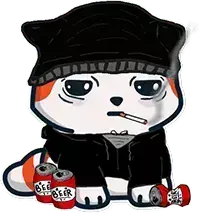
- 21
- 34
- 181
- 121
"Hannah Westland, publisher of the literary imprint Serpent's Tail, says she's not always confident that there's a market for fiction written by young men. "If a really good novel by a male writer lands on my desk, I do genuinely say to myself, this will be more difficult to publish." She believes that the "paths to success" are narrower because there are fewer prizes open to men, fewer magazines that will cover male authors, and fewer media figures willing to champion them – in the way that, for example, Dolly Alderton and Pandora Sykes have championed female authors on their podcasts."
i challenge even one dramafoid to name a single good compelling male character written by a woman 30 and younger, written within the timespan of 1995-2024
- 11
- 13
Erik Von Shakesburg stared at his men lying dead in the streets of Berlin and the massive bald figure in a ridiculous cowboy get-up who danced among them.
He raised his pistol.
"Who are you,"
The figure turned and stared at him, stonefaced, but broke a grin as he said
"Isn't it obvious? I am Ozymandias! Look upon my works ye mighty and despair!"
And Shakesberg turned and saw that it wasn't only his men who were dead but the entire Drakan army lying dead. Everywhere he looked he saw only desolation and ruin. The German fera;s peered out silently from their homes. They saw his failure and weakness. His people's weakness.
He didn't hesitate. Erik had many vices and faults, but cowardice was not among. He emptied his clip into the strange figure.
The gun jammed.
The strange pale man's grin got even wider.
"I fear the game is over for you."
The strange man began to leisurely walk towards Erik with all the urgency of a golfer retrieving his ball on a perfect Sunday afternoon
"Game? You think this is a game you freak ?!?"
The man began to speak as he walked, Erik had never seen someone manage to do both at once with such effortless grace, such noble poise.
"Of course it is. War is a game. Nay. War is the game. Men are born for games. Nothing else." With every word the strange bald man got closer. He easily cleared the wreckage and rubble of the streets. For such a fat man he was shockingly nimble on his feet,
"Every child knows that play is nobler than work. He knows too that the worth or merit of a game is not inherent in the game itself but rather in the value of that which is put at hazard. Games of chance require a wager to have meaning at all. Games of sport involve the skill and strength of the opponents and the humiliation of defeat and the pride of victory are in themselves sufficient stake because they inhere in the worth of the principals and define them. But trial of chance or trial of worth all games aspire to the condition of war for here that which is wagered swallows up game, player, all. " Erik began to silently pray to a god he did not believe in and silently back away.
"Suppose two men at cards with nothing to wager save their lives. Who has not heard such a tale? A turn of the card. The whole universe for such a player has labored clanking to this moment which will tell if he is to die at that man's hand or that man at his." Erik began to run but the pale man still kept up his pace. It was impossible. He was going a full sprint but the fat man kept up at his leisurely stroll.
" What more certain validation of a man's worth could there be? This enhancement of the game to its ultimate state admits no argument concerning the notion of fate. The selection of one man over another is a preference absolute and irrevocable and it is a dull man indeed who could reckon so profound a decision without agency or significance either one." Erik caught his foot in a crevasse and felt something snap. His ankle was broken and he was trapped. With him.
"In such games as have for their stake the annihilation of the defeated the decisions are quite clear. " He was almost next to Erik, so close that Erik could see his lack of eyebrows
"This man holding this particular arrangement of cards in his hand is thereby removed from existence. This is the nature of war, whose stake is at once the game and the authority and the justification." Closer and closer he came. The accent was vaguely American, Erik was sure, but there was the hint of something else. Something inhuman,
"Seen so, war is the truest form of divination. It is the testing of one's will and the will of another within that larger will which because it binds them is therefore forced to select." The Draka had thought themselves predators and superhuman, but Erik knew with a full horrid certainty now that they had always been children playing at evil. This thing was the true lord of the world and the ultimate embodiment of the will to power, The ubermensch was here and he was helpless before him.
"War is the ultimate game because war is at last a forcing of the unity of existence. War is god."
The strange pale god began to leisurely unbuckle his pants and lower his trousers and undergarments. Erik was puzzled by his lack of pubic. Even more than his strange behaviour or inexplicable powers.
"What the frick are you?"
The Judge smiled and spread his arms wide, exposing his throbbing hairless impossible pale genitals.
"I am an aristocrat"
and then he fell upon him.
- 29
- 47
Full Text
I don't know about you all, but English class in high school and college were boring as heck for me. Just had a thought that I would have read way more if a 40k book or two were thrown in there. Just my opinion but books like The Great Gatsby, The Adventures of Huckleberry Finn, A Tale of Two Cities etc don't hold a candle to 40k lore.
A bit off track, but I read on Youtube once (can't find the comment anymore) that some high school student was reading a manga titled "Berserk" and his teacher mocked him along the lines of comic books being unworthy forms of literature. Somehow the student got the teacher to read a bit and the teacher later said it's the best thing he's ever read.
I get that the books we read in English class are "Classics" with "valuable themes", but you can't say that there aren't valuable themes in 40k. If something has value, but it's boring as heck, then the student isn't going to remember it anyway, so all that value is lost. But if it's interesting, then we're opening some doors. Thoughts?
Further Links
r/bookscirclejerk - They should teach WH40K lore in school
tl;dr mandatory lore classes in high school
- 62
- 45
- 3
- 14
- 4
- 8
Fundamentalist Mormonism is a patriarchal abusive religion just like mainstream modern Islam but you don't see too many anti-Islamic novels or biographies written. It's not because Islam is wonderful, but because it will cut your fricking throat if you dare insult it. Just ask Salman Rushdie or Trey Parker and Matt Stone.
There's a lesson there: if you're an abusive monster you can't half-butt it. Either reform and repent or keep being a tyrant and never show any lenience. If you loosen your grip even slightly they'll slip through and escape.
You say that's horrible? I'm @911roofer. At what point did you forget my bit was being a self-loathing psychopath? Did you really think I'd break kayfabe?
Also the novel ends with a bunch of spooky ghost children living in a magical playground without rules where all their feelings are accepted. That sounds like fun up until one of the kid's decides it would be fun to smash his buddies skull in. And none of these kids can ever permanently die so you've got a neverending bloodsoaked hellscape where the little bastards spend eternity torturing each other. Which sounds exactly like how children'a entertainment should be.
Kids need to know that it's an ugly hateful world out there full of homeless people who want to r*pe and/or eat them and rich people who want to brainwash them into slicing off their genitals. The sooner children realize they can't trust their parents, teachers, clergy, or coaches, that nature is only pretending to be cute and cuddly so it can gnaw their face off, and their friends only want to use them the better. Don't trust anyone. Ever.
- 9
- 39
One of them, a dark-skinned man with a buzzcut, and a skull tattoo under his right eye, motioned toward the blinking light.
"You," he barked at one of the slavers, "go check it out."
The grunt, nervous but obedient, approached the tree where I'd hidden the overcharged clip.
Those people are a waste of space, truly the bottom of the barrel, seen enough of these kinds of people in Gaza, they have the same look in their eyes, the same look the Hamas members I fought in the streets and in the tunnels had, they feel powerful as long as they are in the position of perceived power, the moment you take it from them, it's the moment the masks fell off and those cowardly bastards will start to sing the Tikvah if need be to stay alive and be spared.
- 97
- 60
Also, I liked the Goblet of Fire film adaptation
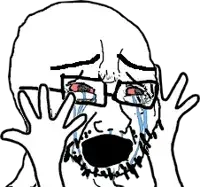
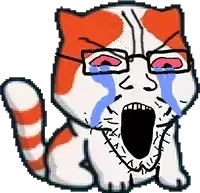
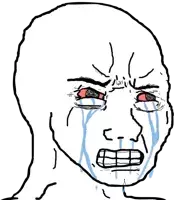
Don't care, and it's the only film Voldemort felt menacing after returning. By the last films he was just kind of goofy.
- 1
- 7
a detective story in Nazi post-war Germany from the perspective of a Nazi detective whose unraveling a murder and larger state conspiracy
Spoilers in this guys review but seems like a really cool book


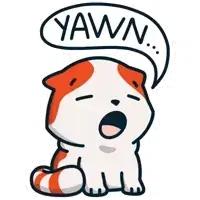



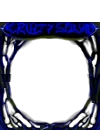
 KEEP YOURSELF SAFE KEEP YOURSELF SAFE KEEP YOURSELF SAFE
KEEP YOURSELF SAFE KEEP YOURSELF SAFE KEEP YOURSELF SAFE 









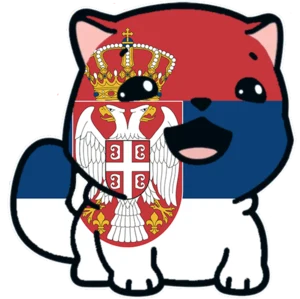

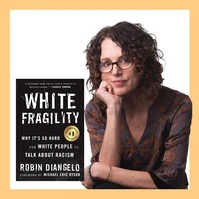













 amusing Fanfic author in the wild!
amusing Fanfic author in the wild!















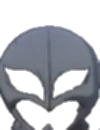
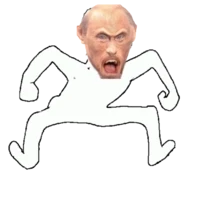 condemns e-books and says that one has to feel and taste the book
condemns e-books and says that one has to feel and taste the book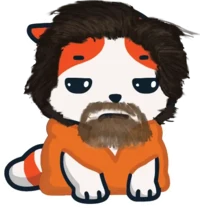

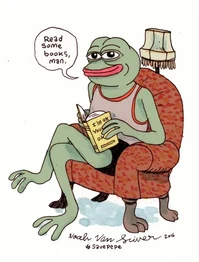


.webp?h=11)
 aweonao
aweonao


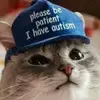


 are too stupid to read children's books
are too stupid to read children's books
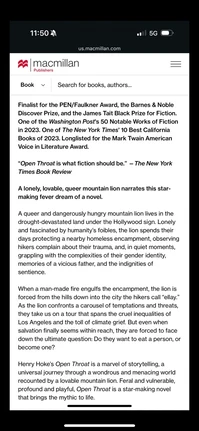


.webp?h=11)

 conquered
conquered 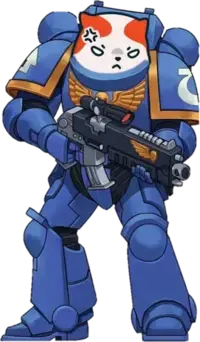 slop >>>>> than any fictional literature written by the hands of any woman on this planet younger than 50 years.
slop >>>>> than any fictional literature written by the hands of any woman on this planet younger than 50 years.



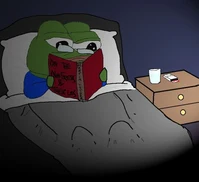
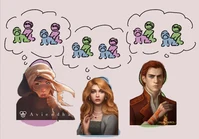
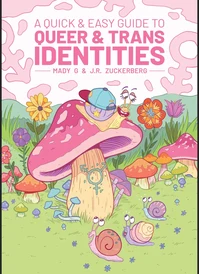




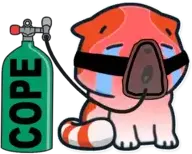






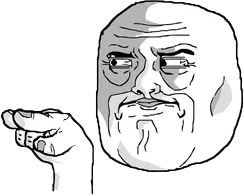
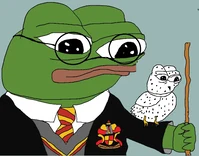





.webp?h=11)

